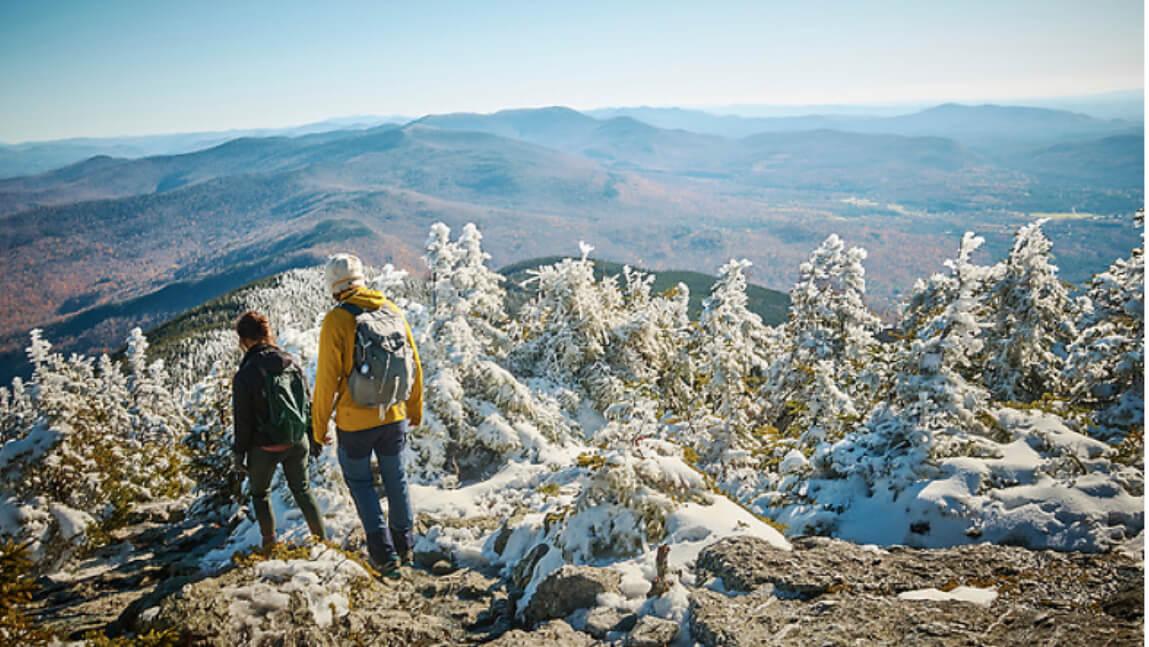When the COVID-19 pandemic hit, UVM associate professor of geography Cheryl Morse began reading media accounts of people moving to her home state. A New York Times story by writer Ellen Berry in September of 2020 reported on the population boom in a tiny southern Vermont community. The article bore the subhead: “The population boomed in Winhall, Vt., as people tried to get away from Covid-19 hot spots. Bear complaints are up. Plumbers are booked until Christmas. And the dump is ‘sheer pandemonium.’”
About a year into the pandemic, Morse had conversations with fellow rural geographers in the U.S. and other countries including the U.K., Canada and Australia. Everyone was seeing the same thing. “People were moving into rural areas at a rapid pace,” she said.
Morse, a geographer who specializes in place, landscape and the environment in Vermont, has published several papers on why Vermonters stay, leave or return to the state. She became curious about the COVID-19 inspired migration.
“I’ve worked with people who grew up in Vermont,” said Morse. “So, what about the people who are choosing Vermont? What’s their story? How might they impact rural communities and rural culture in the future?”
Morse submitted a research proposal and received a James Jeffords grant from the Office of the Provost. She hired Cal Hale ’23—also a life-long Vermonter—as a research assistant, and began reaching out to recent arrivals from out of state.
As they worked together to craft research questions, Morse knew she wanted to conduct interviews in groups, so tne “new Vermonters” could meet each other. She reserved the last third of the interview sessions for newcomers to ask their own questions.
“It was an element of giving back,” she explained. “It was also revealing to hear what questions they brought to us. It gave us an opportunity to see Vermont through the eyes of newcomers.”
Morse and Hale conducted nine separate interviews in five different counties throughout the state, most of them online due to travel strictures. They spoke with 29 people ranging in age from 26 to 70 who came to Vermont from all parts of the country.
The interviewers took care not to ask leading questions which might compromise the data. Instead they did a lot of listening. While they are still in the midst of analyzing results, reasons for relocating fell into a several categories including recreation and lifestyle. “New Vermonters were attracted by the physical environment and recreational activities they perceive Vermont to offer,” Morse said.
Several people, mostly from western regions, relocated due to climate factors like wildfires, earthquake risk or insecurity about availability of water. “We consider them climate ‘movers’ and not climate refugees because they were not moving as a result of a specific natural disaster but because of the impression that Vermont has a more even, temperate climate,” Morse said.
Another factor might be summed up as the “Bernie effect.” Many newcomers saw Vermont as a place that embodies their political and cultural values.
While few interviewees cited economic opportunity as a reason for relocating, Morse said many were working remotely and brought their jobs with them. “There were several variants among couples,” Morse said. “One person might work remotely, and their partner might have secured a job after arriving.”
She noted that most new arrivals were able to sell their homes in areas with higher real estate values and buy cheaper properties in Vermont. Many bought homes sight unseen, aided by virtual video tours. They also expressed some regret at how this activity might drive up home prices in the state and cause gentrification.
Cal Hale, who grew up in the Connecticut Valley town of Hartland, has a strong interest in social trends and politics in the state. He has a double major in political science and geography and shared drawbacks newcomers say they are encountering in their new environs. “There was a perception that lack of internet access was a hurdle. A lot of people also felt they were giving up the benefits of racial diversity.”
Hale has completed several internships at UVM including earning credit for running state senator Alison Clarkson’s successful reelection campaign. Like Morse, he grew up in Vermont and knows he’ll never be able to capture the perspective of a true newcomer. But his work with Morse has deepended his understanding of what it means to be a Vermonter.
"This project has been a valuable experience for me as someone who grew up in a small Vermont community where there might be some grumbling about the new folks moving in—are they going to stick around or just buy up second homes? I’ve met 29 people who are eager to engage in their new communities here, many of whom intend to be here for the long run, so I feel pretty positive about that aspect of this migration."
